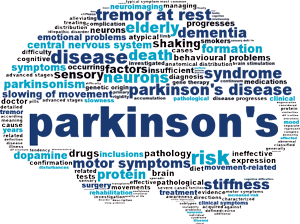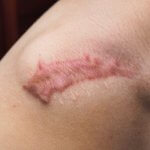Parkinson’s affects around 1 in 500 people in the UK and is caused when dopamine-producing nerve cells degenerate and can no longer work effectively. Dopamine is responsible for sending signals to the part of the brain that controls movement; lack of dopamine is responsible for the jerky and uncontrolled movements symptomatic of Parkinson’s.
All 11 primates in the study showed significant improvement two years after having the stem cells transplanted into their brains. Parkinson’s neurosurgeon Professor Jun Takahashi from Kyoto University, who led the research, described the following results:
“the monkeys became more active after cell transplantation: moved more rapidly and more smoothly, and showed more various type of movements and less tremor”.
The outcome of this study brings hope Parkinson’s sufferers, and trials in humans look set to start Scientists in 2018.

Experts in the UK have welcomed the news. Professor David Dexter, deputy research director at Parkinson’s UK commented
“Current medication only serves to mask the symptoms of the condition, but makes no changes to the brain cells themselves. These studies show that, should brain cell transplantation become a viable therapy, it has the potential to reverse Parkinson’s by replacing the dopamine cells that have been lost – a groundbreaking feat.”
References:
https://www.nature.com/articles/nature23664.epdf
Takahashi J. (2020). iPS cell-based therapy for Parkinson’s disease: A Kyoto trial. Regenerative therapy, 13, 18–22. https://doi.org/10.1016/j.reth.2020.06.002
Doi, D., Magotani, H., Kikuchi, T., Ikeda, M., Hiramatsu, S., Yoshida, K., Amano, N., Nomura, M., Umekage, M., Morizane, A., & Takahashi, J. (2020). Pre-clinical study of induced pluripotent stem cell-derived dopaminergic progenitor cells for Parkinson’s disease. Nature communications, 11(1), 3369. https://doi.org/10.1038/s41467-020-17165-w
Schweitzer, J. S., Song, B., Herrington, T. M., Park, T. Y., Lee, N., Ko, S., Jeon, J., Cha, Y., Kim, K., Li, Q., Henchcliffe, C., Kaplitt, M., Neff, C., Rapalino, O., Seo, H., Lee, I. H., Kim, J., Kim, T., Petsko, G. A., Ritz, J., … Kim, K. S. (2020). Personalized iPSC-Derived Dopamine Progenitor Cells for Parkinson’s Disease. The New England journal of medicine, 382(20), 1926–1932. https://doi.org/10.1056/NEJMoa1915872
Request a Welcome Pack
Find out more about cord blood banking by downloading a Welcome Pack now.








